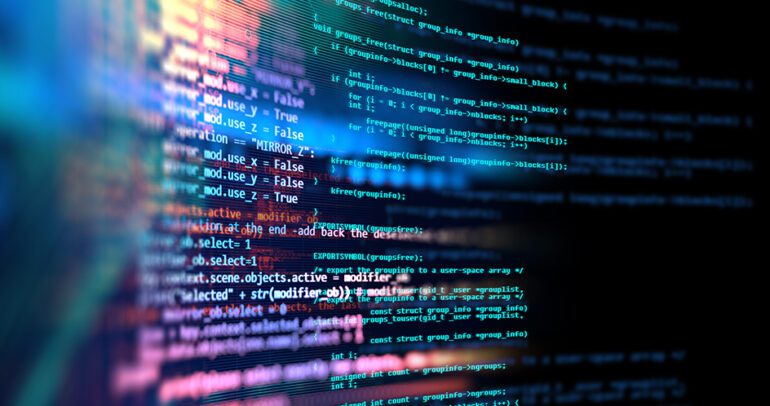TL;DR:
- Generative AI, powered by models like GPT-4 and Copilot, is revolutionizing software development.
- Developers are experiencing increased productivity, with AI assisting in coding tasks.
- This shift may lead to a transformation in developers’ roles, focusing on higher-level responsibilities.
- The importance of clear communication and problem-solving skills for developers is emphasized.
- Intellectual property issues surrounding generative AI and open-source code are unresolved.
Main AI News:
In the ever-evolving landscape of technology, the role of a software developer is undergoing a significant transformation, driven by the relentless march of artificial intelligence (AI). This transformation is primarily attributed to the emergence of generative AI models and AI-powered assistants like OpenAI’s GPT-4 and Microsoft’s Copilot. These remarkable AI innovations possess the extraordinary ability to generate code swiftly and proficiently in various programming languages, catering to a multitude of purposes and applications.
The pivotal question that looms in the minds of industry experts is the extent of this transformation. Will it lead to the diminishment of software developers’ roles, or will it open up new avenues for their success and innovation? The verdict, as of now, appears to be a mixed bag of reactions.
On one hand, generative AI is being hailed as a revolutionary force in boosting productivity among developers. Joe Welch, Principal and Technology Leader at Launch Consulting, a division of The Planet Group, remarks, “Generative AI is dramatically transforming the way developers approach their roles, ushering in nothing short of a revolution in productivity.” He points to the incorporation of GitHub Copilot into VS Code, where programmers can reduce once time-consuming tasks to mere seconds, with the AI-driven Copilot writing code efficiently and often delivering ready-to-use solutions.
While generative AI may streamline the more repetitive aspects of a developer’s work, it also offers a glimmer of opportunity. Developers have the chance to elevate their roles within their organizations. In essence, retrenchment in the age of AI and automation may not necessarily be a negative development but rather a pathway to exciting and novel responsibilities.
The industry is buzzing with excitement about the power and productivity that generative AI platforms bring to the world of software development. According to a report from consultant KMPG, generative AI could become the most valuable coding partner for many developers. This technology has the potential to free overburdened IT professionals from mundane tasks, allowing them to focus on more significant challenges aligned with their business objectives.
At its core, generative AI enables developers to handle larger volumes of project work efficiently. It promotes flexibility and adaptability, making developers more versatile across different frameworks, platforms, products, and systems of record. The scaffolding and guidance provided by generative AI empower developers to tackle a broader range of projects than they could in the past.
However, increased productivity is just the beginning of AI and automation’s impact on the future of employment in the software development domain. As generative AI gains more prominence, developers will be expected to transition into higher-level roles. They will need to orchestrate AI-delivered resources to align with the strategic needs of their organizations.
Mahesh Saptharishi, Chief Technology Officer for Motorola Solutions, emphasizes the importance of developers’ ability to articulate their coding requirements clearly. User stories that provide AI with the right information will play a crucial role in this evolving landscape. Saptharishi envisions a shift where user stories might become the new code, emphasizing the need for developers to excel in communication and problem-solving.
This shift in focus will lead to a retrenchment in traditional programming roles, paving the way for business-focused developers who assemble the necessary capabilities for specific applications. Duncan Angove, CEO at Blue Yonder, foresees a future where human programming skills become less essential and are gradually replaced by human-prompt engineers. Business analysts and product managers will assume the role of prompt engineers, translating business needs into prompts that generate the required code.
While the industry grapples with these transformative changes, it’s essential to maintain perspective. Developers won’t overnight delegate all coding tasks to AI. Saptharishi highlights that AI will make developers more efficient and reduce errors, but creativity, problem-solving skills, and the ability to communicate and teach will remain vital for success in an increasingly AI-intensive environment.
Nevertheless, a significant hurdle on the path to AI-driven software development is the unresolved issue of intellectual property. The use of generative AI models trained on open-source code raises complex questions about ownership and licensing, which need to be addressed.
Conclusion:
The retrenchment of traditional software development roles is already underway in the age of AI and automation. Yet, opportunities abound for developers and IT professionals who can provide value in areas beyond what AI can replicate. As the technology continues to evolve, fresh thinking and skill sets that complement AI will become even more valuable assets in the software development landscape. It’s time to embrace this transformative era with an open mind and a willingness to adapt and innovate.

